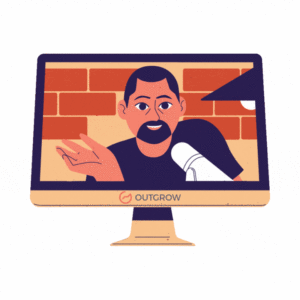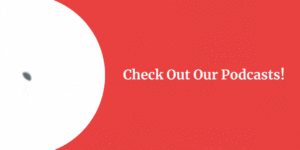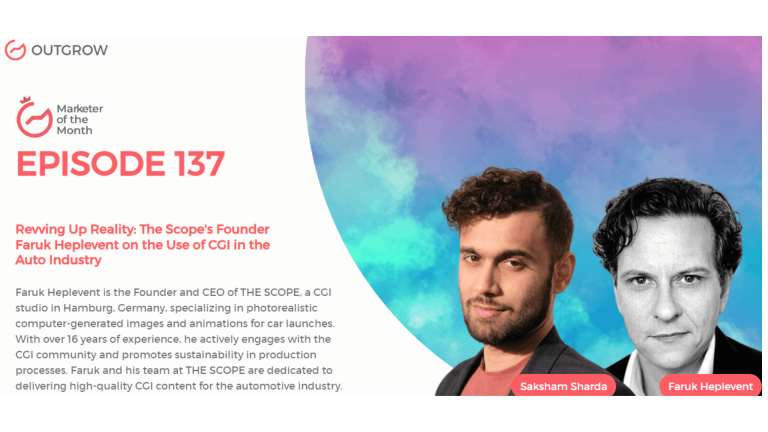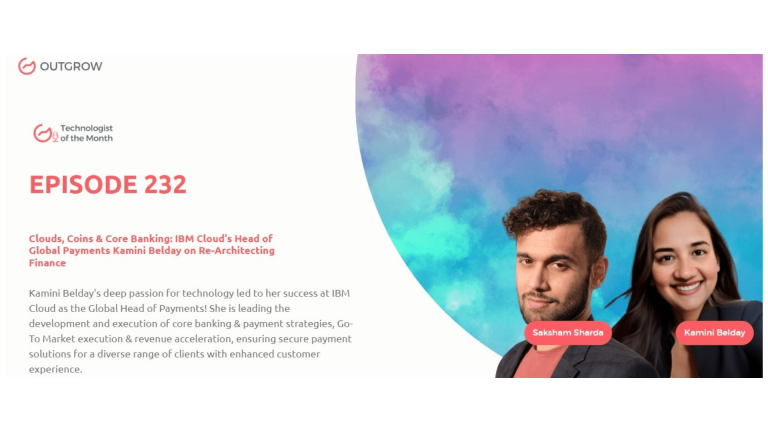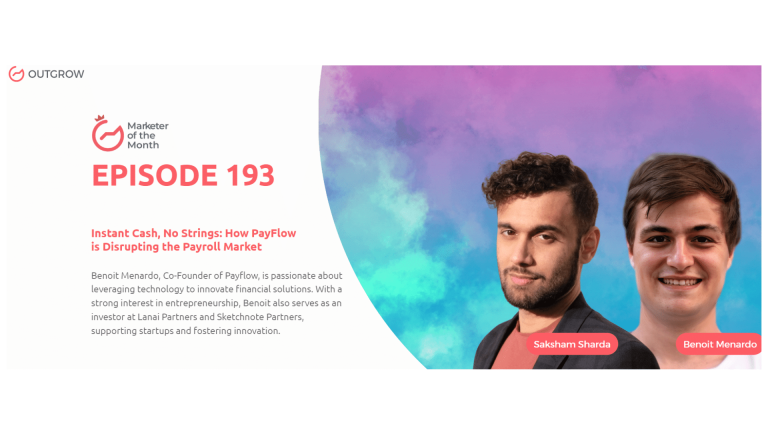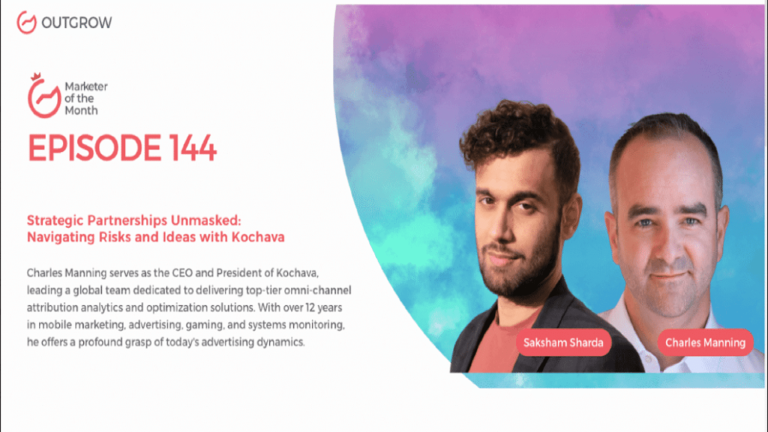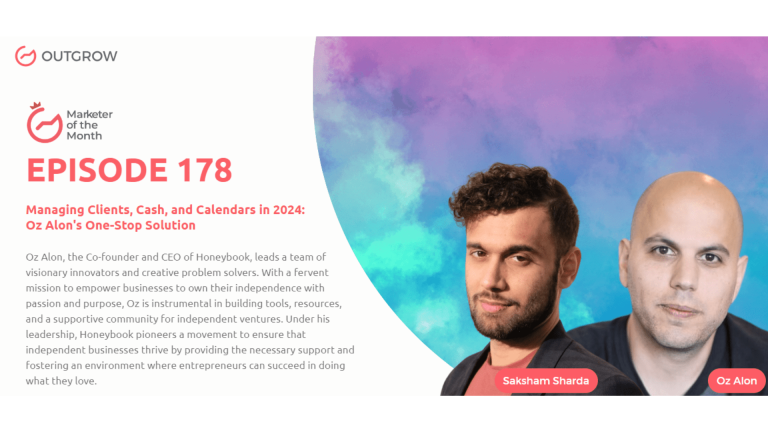Summarize with :
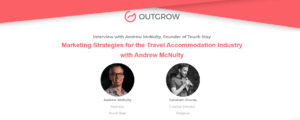
We recently interviewed Andrew McNulty for our monthly podcast – ‘Marketer of the Month’! We had some amazing insightful conversations with Andrew and here’s what we discussed –
1. From being a CFO at Gucci to starting his company
2. Post-pandemic future of the short-term rental industry
3. Reducing the carbon footprint using digital guest books
4. Airbnb and the strength of creating a community
5. Best ways rental industries can generate feedback
6. How Touch Stay is tackling the post-pandemic surge in travel
About our host:
Dr. Saksham Sharda is the Chief Information Officer at Outgrow He specializes in data collection, analysis, filtering, and transfer by means of widgets and applets. Interactive, cultural, and trending widgets designed by him have been featured on TrendHunter, Alibaba, ProductHunt, New York Marketing Association, FactoryBerlin, Digimarcon Silicon Valley, and at The European Affiliate Summit.
About our guest:
Andrew is the co-founder of Touch Stay, a software service that enables hosts and managers in the short-term rental industry to create digital guidebooks for their guests. In the past, he has worked for 15 years in the luxury fashion industry holding C-level positions at brands like Gucci, Alexander McQueen, and Victoria Beckham.
The Podcast – Marketing Strategies for the Travel Accommodation Industry with Andrew McNulty
Table of Contents
The Intro!
Hi, everyone. Welcome to another episode of Outgrows Marketer of the month. I’m your host, Dr. Saksham Sharda. I’m the creative director at outgrow.co. And for this month, we are going to interview Andrew McNulty, who is the co-founder of Touch Stay. A software service that enables hosts and managers in the short-term rental industry to create digital guidebooks for their guests.
Saksham Sharda: Thanks for joining us, Andrew.
Andrew McNulty: Thank you for having me, delighted to be here.
Saksham Sharda: So Andrew, we’re going to start with a rapid-fire round just to break the ice. You get three passes, in case you don’t want to answer the question. You can just say pass, but try to keep your answers to one word or one sentence only.
Andrew McNulty: That’s a challenge, but I’ll try!
The Rapid Fire!
Saksham Sharda: All right. So the first one – How long does it take you to get ready in the morning?
Andrew McNulty: Ooh, five minutes.
Saksham Sharda: Most embarrassing moment of your life?
Andrew McNulty: Probably running drunk over a Porsche.
Saksham Sharda: How many hours of sleep can you survive on?
Andrew McNulty: I like my sleep, eight!
Saksham Sharda: Fill in the blank – An upcoming marketing trend is _________.
Andrew McNulty: Being personal.
Saksham Sharda: The city in which the best kiss of your life happened?
Andrew McNulty: Perth.
Saksham Sharda: Pick one, Mark Zuckerberg or Jack Dorsey?
Andrew McNulty: Jack Dorsey.
Saksham Sharda: The first movie that comes to your mind when I say the word ‘ambition’.
Andrew McNulty: Ooh. I pass.
Saksham Sharda: When did you last cry and why?
Andrew McNulty: I cry frequently! When my cat died recently.
Saksham Sharda: The biggest mistake of your career?
Andrew McNulty: Doing things too fast.
Saksham Sharda: How do you relax?
Andrew McNulty: With family.
Saksham Sharda: How many cups of coffee do you drink per day?
Andrew McNulty: One, maximum!
Saksham Sharda: A habit of yours that you hate.
Andrew McNulty: Indecision.
Saksham Sharda: The most valuable skill you’ve learned in life?
Andrew McNulty: Patience.
Saksham Sharda: Your favorite Netflix show?
Andrew McNulty: We’re watching Schitt’s Creek.
Saksham Sharda: Okay. So that was the end of the rapid fire round and you scored 9 on 10 cause you passed with one question. So you only win a car. Just kidding! You don’t win! Welcome to marketing, but, yeah…
So let’s go on to the bigger questions. The first one is –
The Big Questions!
Saksham Sharda: From being a CFO at Gucci to starting your own company. What challenges did you face in your corporate life? And tell us about this journey.
Andrew McNulty: Well, that’s not a question I get asked that often. So thank you for asking it. At Gucci was an absolute ball, as was my entire life in fashion. Not because I’m a fashionista. In fact, if people could see the video at the moment, they’d realize pretty quickly that I am not a fashionista.
However, the people are fantastic. I know they’re amazing. And that’s, what’s kept me there as long as, or had kept me there as long as it did together with the fact that I was really ambitious and still am. So there was always a lot of progressions. But because I wasn’t a product person, a fashion person, it was never going to be something that, that fulfilled me.
I had always wanted to found my own business and start my own business. Mainly because I don’t generally, like being told what to do. So, I will listen and they’ll take on board people’s feedback and then ultimately make up my own mind. But I’ve found that in corporate life, that was incredibly hard to maintain because you could see where you would do things differently.
That’s ultimately what eventually pushed me to go to start my own business was that I was like 30 mid-thirties at that point and there’s a point in your life where those kind of bigger decisions about going on to do what you really want to do have to happen. That mid-thirties, it was a good moment. I had reached a nice position in Gucci and in fashion generally. And I can take all of the skills that I’ve learned and that’s not to be underestimated. The skills that I picked up there were, were huge for me now. And so I jumped ship and started my business.
Saksham Sharda: Hmm. Okay. So, but since we are on the topic, what do you think of the upcoming House of Gucci movie?
Andrew McNulty: I think everything that Gucci has done over the years, has been to always try to find that different angle and to tap the moment at the time. And that is something that very few brands managed to do successfully.
And I think that the example you gave there, it’s just one of many where, I kind of caught on pretty quickly to where things going in the shape of things. I think it’s brilliant. All sorts of things they do. And I think that’s what you have to do in fashion. Especially if you want to have mass appeal, like the fashion for true fashion needs, fashionistas, which is, you know, very exclusive, very high-end very one-off pieces. And then, when you hit that, that, that point where you reach a certain audience and you have to decide whether you stay true to that core.
Or whether you want to try and bring in some mass-market to it. And Gucci had been really successful at doing that through the range of products they have in the merchandising. They have to be able to bring in those accessible products. But in order to do that, you really need to shift away from marketing, purely as this kind of exclusive kind of almost untouchable unattainable thing to something that is more democratic.
And I think they do that really well.
Saksham Sharda: Hmm. So how did the idea of Touch Stay first come up? Like when in bed did you see the need for starting such a software service?
Andrew McNulty: Well, I’ve always traveled, as most people have, but I have always traveled and stayed in independent accommodation. So not your big brand hotels.
Like my parents took me to places, but, you just kind of turned up and you rented this home for a week and, you know, it didn’t have the resort amenities that a hotel has, but it was really an interesting form of accommodation to stay in. But I found as I started to stay in those places myself and take my kids to those sorts of places, that quirkiness, which was a real, positive for those kinds of businesses, was often matched in a way that you wouldn’t necessarily think of, which was that the owners behind the scenes often had a little quirkiness and personalities and things to say. And when you tapped into that, as I frequently did, cause I was a pain in the ass and they would ask lots of questions all the time.
It’d be like, well, you know, this is great, but we don’t take my kids for ice cream or what’s the best pizza place to go to, or just really annoying stuff. Like, you know, you said that there would be, towels in the bathroom. I don’t see any, where are they? You know, those kinds of things. And the more and more I asked those questions, the more and more I realized that the person I was staying with had the answer instantly.
And I thought, why are they spending all this time answering my questions and my questions must be just like all the other questions that come from guests. You know what it’s like, if you’ve gone and stayed in Airbnb or something, you never truly know exactly what your experience is going to be like or what you’re going to get.
And so inevitably there are unanswered questions where if you’re like me, you are, you ask them and there are always answers. And we thought, well, let’s take that into a digital product so that the guest knows after they’ve booked that they have everything on their device that they could possibly want to know.
Not only is that good for the guests, but it’s fantastic for the busy host. Why would you answer the same question over and over and over again? When you have this effectively knowledge-based digital repository of all the answers, which you can give to your guests before they even leave home. So. That was the Genesis of it.
And it’s become so much more than just that. So many more potential things that you can do once. I mean, you know, once you have something in digital form when you reach a consumer, there are lots of things you can do with it. But that was the birth of the idea.
Saksham Sharda: And where do you think, cause after the pandemic or during the pandemic, I suppose the Airbnb industry, or this independent homes rental industry took up a little bit of a beating I suppose.
What do you think the future of the industry is in general?
Andrew McNulty: Well, first of all, I think it’s interesting that, that the beating that these kinds of places took was really very, very short-lived. If you were fortunate enough to be in a market where there was a lot of domestic travel, so the UK where I’m from, but also, you know, virtually the majority of the US with the exception of, you know, probably Hawaii, you know, regions, which had to fly to. Domestic travel in Australia, for example, in New Zealand. But as soon as you go to Thailand, Indonesia, Caribbean islands, all those places you have to fly to. They, they took a beating for a, for a lot longer.
But for those that had domestic travel, we all wanted to go away. And as soon as our economies allowed us, so our governments allowed us to do so we went, we just didn’t get on a plane to do so. And I think one of the wonderful things that have come out of that is that we all, I mean, don’t get me wrong.
I think we’d all still love to jump on a plane and fly somewhere or to be completely away from staff. But I think we’ve also realized that you know, this, this, this thing about travel, this emotional part of travel, which is to escape can be easily achieved domestically. You know, there’s some wonderful places in here in the UK that we’ve gone to an experience that are on our doorstep.
And you’re like, why do I have to fly to Florida or something, you know, to feel like I can get away. You could do that domestically. So this fueling of demand and this discovery that we’ve all been able to, to find because of the pandemic is what is one of the really positive aspects I would take away.
And I think that’s one of the things that this industry, particularly short-term rentals will really, really benefit from is the, the number of extra eyes that are on this form of accommodation. That probably weren’t there before. I mean, Airbnb did a great job of growing the awareness of this kind of accommodation.
But the wave, the pandemic, the hit in the forcing of people to try and find things on their doorstep meant that there was a huge demand for stuff on the doorstep that hotels couldn’t fill the other forms. Accommodation can. And if you had the money that you saved from taking your family of four off to the states from the UK, and, you know, maybe you save two, 3000 pounds on the airfare.
Some of that’s going back into investing in really nice places to stay in the UK. So you can kind of up your level of stay experience. And I think that’s a, that’s one of the things. That’s, that’s really been beneficial to come out of it. And I think that’s one of the, one of the things that, I mentioned earlier, one of the questions which you asked about.
Excuse me, a future trend in marketing and, and I, and I think I replied, being personal. And I think that that is what we all crave now. It’s not just a place to stay, but a place to stay that has a certain difference about it. And often that’s around the experience you have when you’re there.
The interactions you have with the people that you’re there, the interactions you have with the hosts, it’s the interactions that you, the experiences you’re having in the community, the places you see, your places you go to, on a much deeper level, because we all appreciate it so much more. And I think if we can tap into in this, the industry is brilliantly poised for that. To be able to tap into this great asset that they have, which is a very personable form of accommodation and host behind it.
And this desire of the traveler to want to go connect with something a bit more interesting than hotels.
Saksham Sharda: I think the point you make about quirkiness and personalization or making it personal as something that also, I think Rory Sutherland from Ogilvy, he made the point that either you can have an experience where you go to a hotel and they give you a chip and you just check in and everything, or on the other hand, that’s sellable.
But on the other hand, there’s the other experience, where they give you this ancient key to open your door in this ancient way, or like, you know, it’s something unique about the place that you won’t find anywhere else, and it’s not following a pattern. So I completely associate with your point. And I also feel that there’s going to be, you know, after the pandemic, travel 2.0, where we get to like, you know, really redefine the entire travel industry and kind of figure out, like you said about, finding great places in our own backyard instead of having to fly all the way, because that totally happened to me as well.
Like there was so much to discover here in Germany itself, like, you know, you don’t really have to like go outside. So yeah, I completely associate, but, I was going to say, Tell us more about your digital Guestbooks how you helping hotels reduce the carbon footprint because that’s something else we noticed while we were doing research on you.
Andrew McNulty: Yeah, we’ve, we’ve been very at the outset, very keen to try and bring in a sustainability angle to our business and do it in a, in a, you know, a serious and honest way. Probably one of the weaknesses. I might’ve said if we’d had a bit more time to talk about it is, is, is a level of earnest that we sometimes have where we want to do things too, to write and to properly, which can stymie you a bit.
But I think it was important with sustainability to try and honor that because there’s a lot of, me too kind of stuff going on. And greenwashing and, you know, you get the point and, and for us, it was important that we set out. Sustainability part so that we weren’t just kind of, you know, saying, oh, on a day, you know, Hey, we’re going to plant some trees.
And more to the point was to, to try and recognize that that us as a company Touch Stay can have our own sustainability position. But that should not be something that we try to push down to our customers through the use of our guidebook product, but rather, give our customers the ability within their guidebooks to showcase their own version of what sustainability is.
And that could be supporting the underprivileged kids charity in their local regions. Or it could be planting trees with ecology at a more macro level, which is what we do. And there, and there are all of these things that, that I was, I don’t know why I was surprised, but all of these things that I suddenly discovered that all our customers are doing, you know, that already, doing things within their community, there was, there was an example of one here in the UK who completely renovated and refurbished their places over COVID and all of the old furniture they have recycled through to local charities. So those people who needed that could take advantage of it. And, that kind of thing, I think is a part of what we were talking about just now that the guests and travelers are looking for a sustainable place to go and stay. And sustainability, like I said, does not have to mean CO2 emissions and planting trees.
Sustainable could mean, are you being a part of generating a local sustainable economy by doing some of the things that I just mentioned. It’s therefore what I might call a triple bottom line effect where, you know, you’re environmentally aware, you’re socially aware, but also it’s a profitability issue for your business because that’s what the guests or the travel want.
And I think that’s important when we, when we think about sustainability, that’s what we wanted to really focus on was to not be one dimensional about it. And that, that has the potential to be slightly complex. But if we can really distill that into the simple message, which is our customers, what are you doing to be sustainable?
And here’s a part in the guidebook where you can talk about that to your guests.
Saksham Sharda: So, what are the things that you’re doing that you think have kind of pushed you back? I’m interested in knowing..
Andrew McNulty: I think it’s because we have a tendency to overthink scenarios. Because we want to do them so right.
And so any particular thing that comes along, you know, there’s, there’s this kind of philosophy with a startup isn’t there where you kind of just crack on with it and do it and see where the chips fall. There’s also a very deliberate way of doing it, which I think is, is equally valid in a startup world.
It doesn’t mean that you, you kind of never do anything, but if you’re going to do something and make that step. Consider all the options and weigh them up. And then by all means implement it simply in the kind of minimum viable product way. But that’s, and you can hear it in the way I’m talking.
That’s a little bit about what I mean about the earnest approach is that we want to do things very deliberately and that can sometimes hold us back if we’re too long on it. But because we have that awareness, we tend to kind of, kind of say, you know, guys, let’s draw the line here and let’s just go with the one that’s on our gut after having considered everything.
Saksham Sharda: I think recently Airbnb announced that they’re going to try to house as many as 20,000 Afghan refugees. Did you hear about that? So I think that a lot of, so I think a lot of these companies are taking a stance in honest. And so I can totally associate with the direction you guys are going in as well.
Andrew McNulty: Yeah, it’s really interesting that what they’ve done, but Airbnb hipping have been good at that. But they, they don’t get me wrong there. I don’t believe in their entire time model. And there are some things that, that I think other people would call out, but, they are very aware of community and it’s, it’s what drove their business.
It’s what got their business to where it was pre pandemic. What are the, at the moment of pandemic when they unilaterally took the decision to refund, all of the guests took the decision out of their hosts, hands about the, the policy refund or not was both on the one hand, brilliant from the guest point of view.
Well done Airbnb, but also awful from the host point of view. And so that’s what I mean about the Airbnb have this difficult, but because they, they have a strong community, I think they, they. The Afghan, example you gave, there is a brilliant one. But they’ve done that in many other scenarios, particularly during COVID and key work because it’s an emergency workers.
So, hats off to that. And I, you know, it’s difficult for all of us to do things like that, because this is a part of the sustainability thing is you don’t, you feel too small, you know, it’s, is it a government issue? Is it a regulation issue? That’s kind of what people are going to default to.
Like, I can’t make a difference. But you can! in this very local community way, and Airbnb has the ability to do it on a much bigger scale, but very, very small operators have an ability to do it at a very micro level that has an impact on individuals in their society. And I think looked at that way, looked at it through that lens.
You realize that there’s an absolute way. You can make a difference. It just doesn’t have to be. The thousands that Airbnb access, but one person to person that you can influence is better than, than nothing at all.
Saksham Sharda: So in addition to Airbnb, what other platforms do you work with or what other platforms are most used by your users?
Andrew McNulty: Our users tend to be quite, democratic in the platforms they use because historically, not all businesses come through a single channel. So, they’ll use a VRBO, which is a, an Expedia company, they will use booking.com, TripAdvisor, some niche channel, so if they’ve got a particular niche, either in kind of demographic that they’re targeting or, particular experiences that they’re offering, then there’s, there’s tons of individual listing sites out there that speak to niches, but those big ones are the ones that I mentioned.
And there’s a growing proportion that, that do drive direct business to their own website, which I think is, is, is very interesting. Some of the larger players that have a big enough brand to be able to offer choice, to travel as can market to consumers directly. And that, that, that doesn’t mean kind of jumping on and competing with Airbnb on Google.
But, it certainly can be through repeat marketing, referral marketing, having strong, well cultivated guest lists. And there, there are many successful examples of in our business. So some who are generating 80, 90% direct bookings and don’t need the channels at all, which I think is very interesting.
Saksham Sharda: And speaking of marketing, how do you market yourself to these people?
Like how do you make your business spread as a word of mouth? Is it through a host telling another host or how does it happen?
Andrew McNulty: We’ve been very lucky in that we are very strong on the word of mouth and referral. That’s mainly because our customers tend to belong to, online forums groups, in some cases, very large ones where we have the benefit of them talking about services like ours and mentioning our product.
And as we’ve grown and as we’ve, as we’ve reached thousands of customers, you reach a point where when one person talks about you on a specific platform, there’s lots of others that chime in and endorse that recommendation. And that has that kind of multiplier effect. So that’s been very, very powerful for us, but we’ve also been, really focused on our own content.
So we’ve, we’ve in, in the early days where we didn’t have any money and I’m sure a lot of your listeners will relate to this as well, where you, you say well, let’s go after page one of Google for our search tabs and for a lot of businesses that that can be quite hard to achieve if you’re in a fairly saturated market.
Whereas, you know, but, you know, we weren’t in the early days, you know, I kind of product was one of a handful. And so we were able to easily hit page one and be top of page one for a lot of the search terms. Now don’t get me wrong. We weren’t getting, you know, hundreds of thousands of people searching for that, but we were getting enough to sustain us in those early days, and really maintain that strong presence.
But we’ve gone away from that now. We’ve, we’ve like I said, we’ve got the referral stuff, but, but we’ve also tried to be a little bit more creative in the kind of things we’re doing, where we don’t have a huge budget behind this, that creativity is, is really important. And the creativity is around the kind of content that we produce.
So we started our own podcast a couple of months ago. We just completed season one. Yeah. Quite rough and ready. Cause you know, you didn’t, you know, you didn’t necessarily have the right equipment. You didn’t really necessarily know how to, to, to organize things. And, actually listening back to some of the podcasts you’ve done, it’s, it’s, it’s wonderful to hear how you structure things and how there’s a certain cadence in each one, which you take through to the next one and this, that kind of consistency which we’ve learned, but the podcast is one to reach a slightly wider audience. And our podcast is all about guests. So we interview guests every time. It’s about the guest perspective. And typically we ask them to come with a story, good or bad that then our listeners who are hosts can benefit from and learn from.
So it’s always with that, that guest mindset. so again, the podcast, the sustainability was, as we’ve said, very important initiative for us and that’s helped us to, in the industry with some others, take a lead and try to get, more in our, in our community to, to adopt some sustainable practices.
And of course that helps grab business too. Case studies we’ve been very strong and I think that’s what it’s really great, important, fundamental part of our business. I’m sure lots of other businesses is that our ability to case study exactly why someone used the product and exactly what benefits they’ve had, what value they’ve had from doing that.
That’s one of the things that we always wanted to do, but could never do it so well because we didn’t have the bandwidth, but also we didn’t have enough customer traction to go out there and have this range of perspective. And now we do. So we’ve been doing that. so it’s lots of micro-moments, you know, there, isn’t kind of this one sort of, you know, aha.
This, this has suddenly taken us from zero to a hundred. And it’s those micro moments that I think we’ve learned that, that the idea you’re a micro-moment is important to grasp and to latch onto that there isn’t this kind of one big that takes you from zero to a hundred.
It’s this series of things you have to do and do them consistently well over time. And it’s a little bit about going back to that thing I was talking about at the start, which is about being really deliberate about the way that you approach things and not just kind of starting something and jumping into it and go, I’ll ask you this.
well, it should be good. Let’s try it, you know? Yes. By all means. But, but does it have like a place within your, your, your story that you see it becoming a longer term thing? And if yes, then yes, jump into it. And so that’s what we’ve done. That’s being been successful for us.
Saksham Sharda: And do you have any strategy of how to handle the expected, a wanderlust that is going to come as soon as the borders open. And whenever this goes away, and there’s like a burst of tourism with a vengeance. Is there a strategy you have for that? Or are you thinking about it or what direction do you think it’s going to go in?
Andrew McNulty: Yeah, we’re thinking about that every day. And, and it’s very interesting for us because we, we have well, we probably have close on a million and a half guests that will use our product this year.
And that’s a part of our business model, which is untapped at present. We monetize through our customers, our hosts and not just individual hosts, but, but managers of a portfolio of properties. And they’re really interesting part is to look at the guest traffic that we have in the guest engagement. We have, particularly to your point about when we all come back to traveling again, without limits restrictions, with which to be honest, I don’t think will happen in the near future. This is going to be with us for a long time, this, this idea of having to, for test and potentially quarantine and new strains, etc. So I think that’s a bit fanciful to them that, that it will open completely, but that there in lies the potential, I think because people value that travel moment so much more than they did before.
How can we leverage what we’re doing, to engage those guests in some other form of monetization for our product? What we’re always mindful of is that the guest is not our guests. The guest is our customers, guests. So we have to, to try and conceive of our product down the road, where our customers have full control over their guests, but they have a number of other options, a suite of options, which will enable both them and us to benefit from the traffic, the guest engagement that we get in those guidebooks. So that’s not really a very tangible answer to your question, but I think it gets across the kind of things that we’re thinking about. And yeah. I mean, I’m kind of interested to hear your view if we may, about what, what you kind of look for in travel and accommodation these days and what you think you might want going forward.
Saksham Sharda: I don’t know. I just know that there is a wanderlust in me, even though I wasn’t a very wanderlust person before the pandemic. And I know for certain I would be interested in traveling a lot after all of this has done. But as you say, we don’t even know when this is going to be done. So there’s nothing concrete we can say.
I was just wondering how what’s your approach or strategy towards it. Wasn’t gentle, but I think that was a good enough answer for a question that’s vague. So thank you. So which way do you think is the best to generate feedback, particularly for them, the rental industry? Like, since this is something you’re encountering a lot.
Andrew McNulty: Feedback, you mean how?
Saksham Sharda: Reviews or feedback, stuff like that for the rental industry in general?
Andrew McNulty: Yeah, most of us will be encouraged after we’ve traveled to delete the Airbnb review automatically. And I think that’s fine. But, I think there is a way for operators in our industry to try to gain feedback from travelers in their final stages of the stay.
You know, whilst they’re in good spirits whilst they really understand when they’ve had a good or a bad experience. And to, to leave the review at that moment. But I also think reviews can be simplified because I think at the moment, a lot of them will ask for, you know, quick star ratings and then leave your comments.
But I think that can be a more of a guided way. That’s much more specific to that business. So much more tailored questions about the kind of dog. place that they were staying. And that that’s one of the interesting parts of our product is that we can facilitate that, you know, on checkout, pinging the guest a message to leave review and have that, that review be ready, tailored to the specific place that they’re staying in, as opposed to being, you know, kind of quite generic, star ratings and an open blank field to, to leave your comments. And I think that the reviews are, are important, but they’re just one aspect. I think, I think one of the things that’s really interesting about this industry is that because it is so quirky and it is so fragmented. That consistency of experience is nonstandard.
There’s no star rating or anything like that, that for homes. And if those reviews can capture the real essence of what it was to stay at that place, and then somehow get a quantitative qualitative feedback, qualitative measure on that place. I think that’s really interesting. We all look at reviews, middle rear reviews.
Of course we do. We look at the photos and we look at the price at a location, and then we might jump and see what social proof exists. I think the moral, the more tailored to that social proof can be the better. So I think, I think it’s interesting that there’s plenty of opportunity there.
Saksham Sharda: So the last question for you is what would you be doing if not this?
Andrew McNulty: What would I be doing if not this? I would probably still be in fashion. Okay. probably not loving it immensely, probably not getting the same satisfaction that I get out of this. But I will say probably living a very comfortable life. Nice fat salary. Which of the things that you give up and trust me that there are moments, I wouldn’t say quite daily, but certainly frequently where you, where you do reflect and you go.
Could, you know, the sliding door, my life. But you know, I can hand on heart say that. yeah. I might’ve been sitting on a much larger bank balance, but I would certainly not be enjoying my life as much. And how much does one need in life? You know? I think that’s one of the important things that I always try to reflect on is, what is happiness in your life? And without getting too philosophical about it, I think that’s really important to try and tap into. And if money drives you, great. But that money is, is important for most people. Of course it is, but, but for a lot of people, it’s, you, you reach a point where are there extra thousand dollars pounds and in the bank account is not going to change your life materially at all.
And so run after the things that fuel you, that fire you, that get you out of bed every day. And that, that ends up without being cliched about it. It’s a much happier life. and so yeah, it, I would probably be in fashion or some corporate life and living my life and having a nice fat, I don’t know how happy.
Saksham Sharda: Cause, cause I guess the pandemic also put a stop to that kind of thinking. So now we kind of, I don’t know, in my case evaluating what makes us happy because you know, you figured out, you can only just do domestic tourism and be equally happy as international tourism. So there’s already like, you already don’t have so much to spend on, and that makes a really value of things. But in your case, you wouldn’t have been sitting on a fat salary and attending the premier of the house of Gucci with Lady Gaga. I don’t know. Maybe that’s what you would have been.
Andrew McNulty: But I know it’s, I, used to go to some of the fashion shows, but not Gucci actually. But Alexander McQueen and Victoria Beckham, where I was at. And it’s funny how people go… Wow! You went to the shows, you went to the fashion shows and be like, yeah. But do you realize that the shows are like 10 minutes? And, you’re, you’re normally standing there waiting for it to start because the designer is hours late. And, it’s over like in a flash.
Yeah. But I mean, I guess that kind of takes away from that, the lead up to it and the experience and the party, there was no, that kind of stuff that goes with it. It is a bit more than that, but yeah, so certainly people are like, oh, the show it’s like, well, we trying to share that that’s a part of it.
Goodbye!
Saksham Sharda: Well, that’s great. Cause I’m mostly conceptual, like long stuff anyways for 10 minutes. So it’s perfect when you get to network the rest of the time. That sounds ideal. Okay. Well that was the end of the interview. Thanks everyone for joining us for this month’s episode of Outgrows Market of The Month.
That was Andrew McNulty, who is the co-founder of Touch Stay, a software service that enables hosts and managers in the short-term rental industry to create digital guidebooks for the guests. Thanks for joining us, Andrew.
Andrew McNulty: Thanks very much for having me. It’s been a blast.
Saksham Sharda: Check out their website for more details and we’ll see you once again next month with another Marketer of the month.


